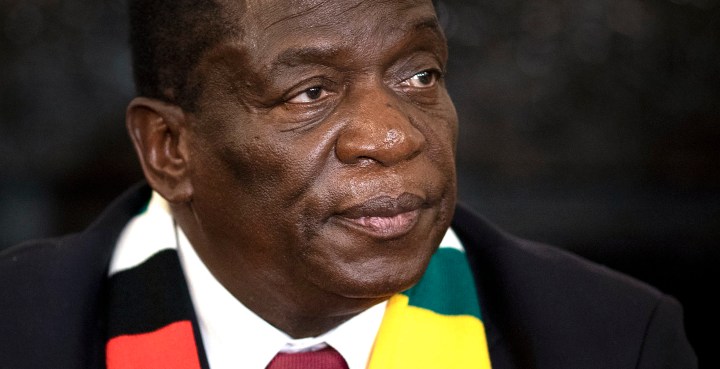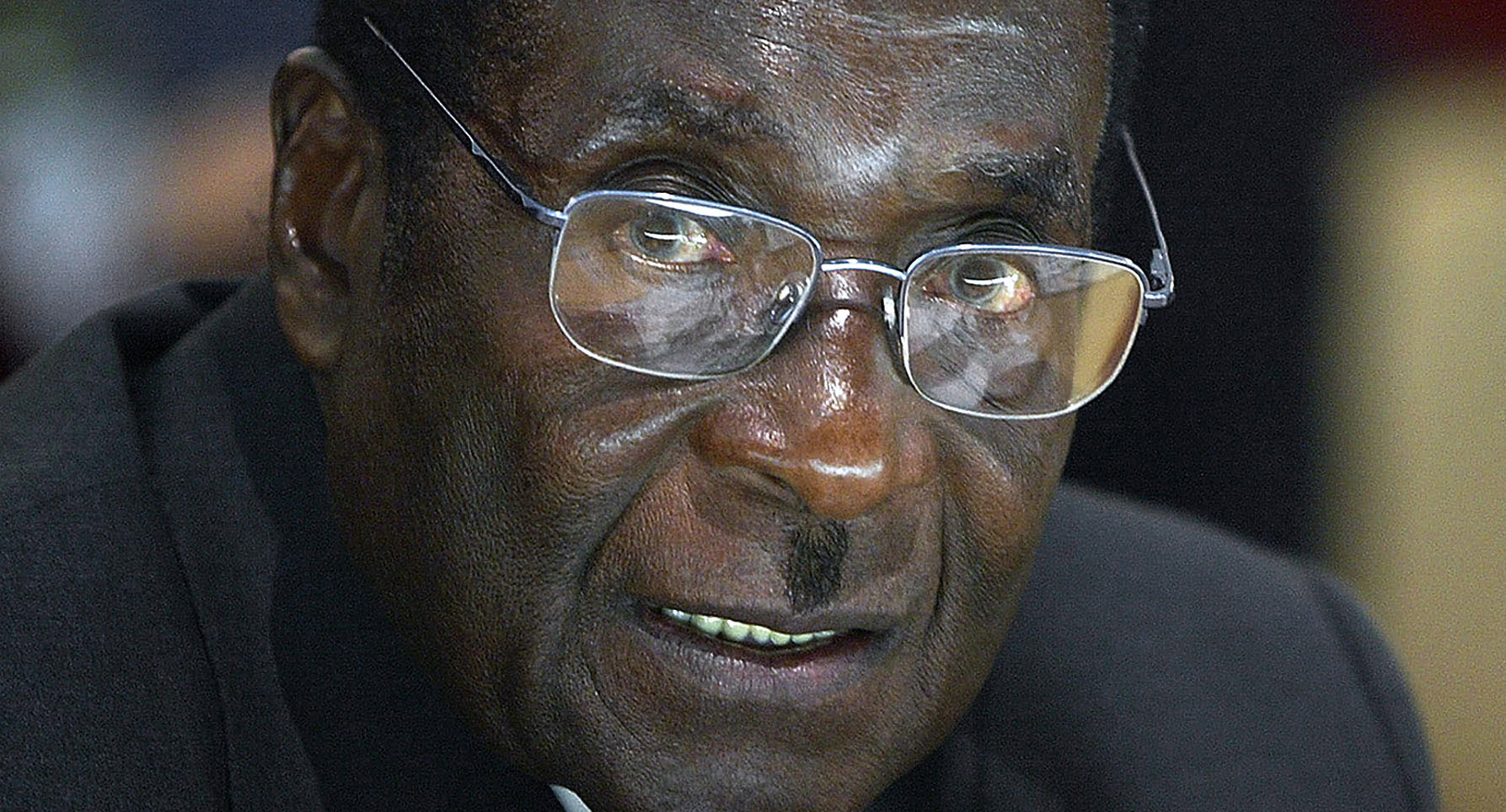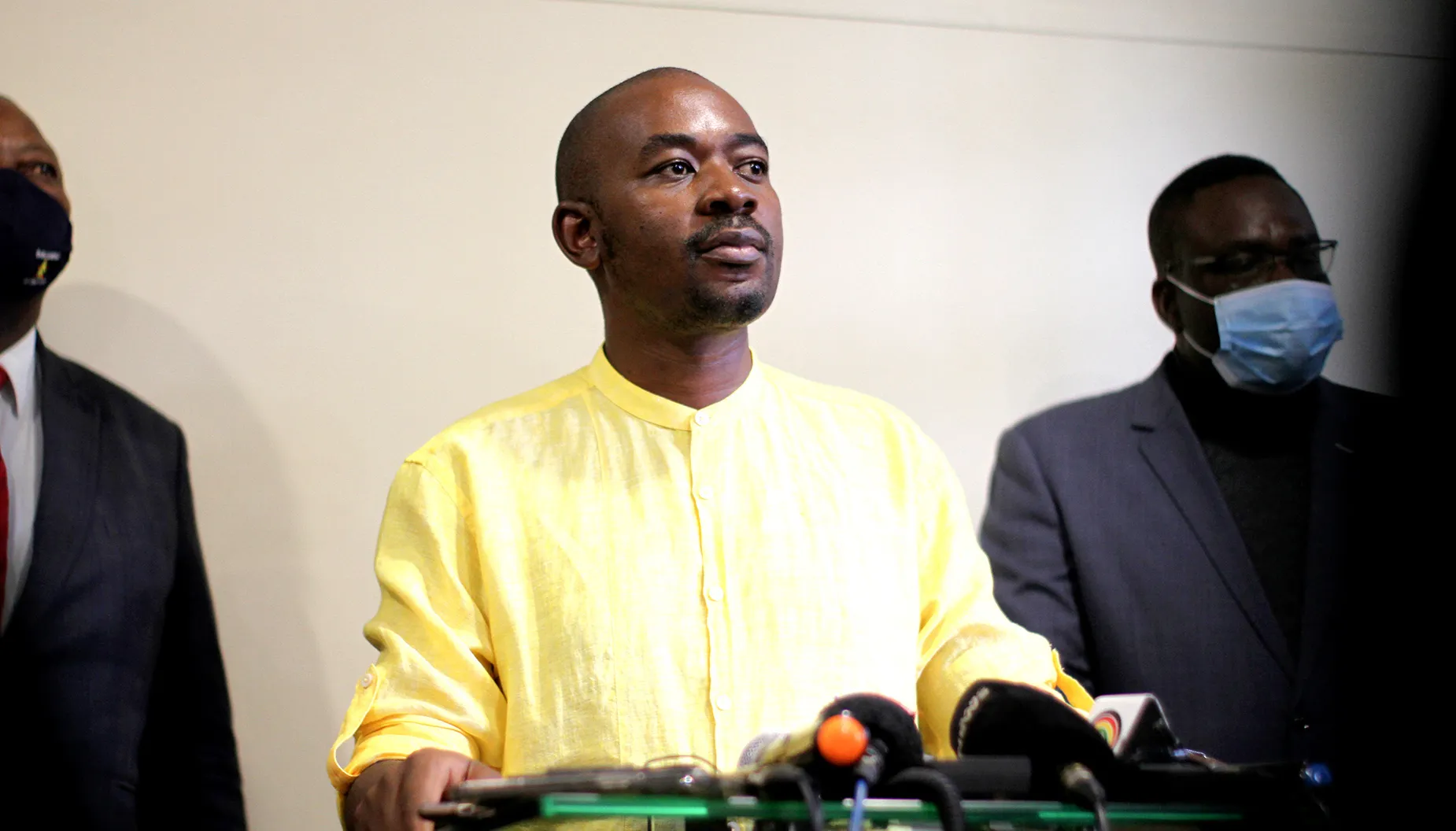NORTHERN EXPOSURE OP-ED
The 2023 Zimbabwe elections — Zanu-PF’s authoritarian tactics already in play

As Zimbabwe moves towards the 2023 elections, the battle to bring about the first substantive democratic transition in the post-colonial period looks bleak. With the military continuing to play a central role in the politics of Zanu-PF, particularly after the 2017 coup, the authoritarian logic of the previous Mugabe regime has only deepened.
As citizens in the SADC region followed the elections in Zambia in August 2021, there was great excitement at the country’s third presidential transfer of power to its latest incumbent, President Hakainde Hichilema of the United Party for National Development.
With former President Edgar Lungu’s government moving into increasingly authoritarian forms of rule, the fight for a credible and peaceful election became the centre of the struggle to maintain a democratic path in Zambia.

Zambian President Hakainde Hichilema. (Photo: EPA-EFE / Nic Bothma)
As Kate Pruce and Marja Hinfelaar have observed, a key part of the struggle for a free and fair election in the country revolved around the interventions and linkages between “progressive CSOs, intellectuals, lawyers and artists, and the innovative use of social media amidst media repression and Covid restrictions”. In addition, the Christian Churches Monitoring Group, under the leadership of Emmanuel Chikoya, played a crucial role in election observation.

Former Zambian president Edgar Lungu. (Photo: EPA-EFE / Harish Tyagi)
However, a central part of the presidential transition was a combination of the political neutrality of the military and the determination of citizens to protect their vote. (Read: K. Pruce and M. Hinfelaar, Against the odds? Democracy counters dominance in Zambia’s 2021 election. Global Development Institute, 26 October 2021).
As Zimbabwe moves towards the 2023 elections, the battle to bring about the first substantive democratic transition in the post-colonial period looks much more bleak.
With the military continuing to play a central role in the politics of Zanu-PF, particularly after the 2017 coup, the authoritarian political logic of the previous Mugabe regime has only deepened.

Former Zimbabwean president, the late Robert Mugabe. (Photo: Pascal Le Segretain / Getty Images)
One of the features of the political sphere in Zimbabwe post-2017 has been the persistent attempts by the ruling party to systematically dismantle the main opposition MDC Alliance led by Nelson Chamisa.
These have taken the following forms:
- The use of the judiciary to remove Chamisa from his position as president of the MDC Alliance led by former leader Morgan Tsvangirai.
- The setting up of a more pliable leadership of the MDC under the leadership of Douglas Mwonzora, currently claiming to be the “legal” president of the MDC Alliance.
- The removal of 28 MPs and 105 local councillors from the MDC Alliance following the removal of Chamisa as leader of the main opposition party.
- The creation of a Political Actors Dialogue process controlled by Zanu-PF and excluding Chamisa’s party, which has refused to join what they consider to be a futile process.
- The suspension of by-elections under cover of the Covid pandemic to provide an extended period of survival for Mwonzora’s leadership. The Zimbabwe Election Support Network (ZESN) has recently expressed concern that this continued suspension of by-elections has taken place despite the “hive of activity with multitudes of congregants at religious camps where concern about peoples’ health does not seem to have been given weight as in the suspension of by-elections”. ZESN also noted that this delay is “contrary to democracy and human rights” and “non-compliant to regional and international instruments that govern the conduct of democratic elections”. The by-elections have now been scheduled for March 2022.
- Violence against the Chamisa leadership in 2021 as the MDC Alliance leader attempted to campaign ahead of the 2023 elections in the provinces of Manicaland, Masvingo and Mashonaland West.
- The gazetting of a Private Voluntary Organisations Amendment Act on 5 November 2021, essentially seeks to comprehensively police the activities and messaging of civil society groups. In effect, this act will prevent civic groups from campaigning against the state in regional and international spaces.

Nelson Chamisa (centre). (Photo: EPA-EFE / Aaron Ufumeli)
At this stage, it is only more strategic and unified initiatives by the political opposition and civil society groups that will present even a glimmer of hope for a democratic transition. The continued fissures in the political opposition cast grave doubt on such processes in the near future.
However, such pressure could lead South Africa and a few other countries in SADC to push for a new national dialogue between the major political forces in Zimbabwe.
One indication that SADC might be interested in such a way forward was a recent statement by current SADC chair, Malawian president Lazarus Chakwera. Even though the statement confirmed SADC’s call for the lifting of all sanctions on Zimbabwe and reiterated its solidarity with the government of Zimbabwe, Chakwera also stated:
“The Republic of Zimbabwe, and the SADC region, are committed to engage in meaningful and constructive dialogue with all relevant stakeholders, with a view to consolidate the rule of law, democracy, governance and human rights.
“It is only through such exchanges that better appreciation of the concerns of all parties could be secured and progress towards their resolution be achieved.”
However narrow it may be, this could be a possible gateway for a way forward in Zimbabwe. DM/MC
Brian Raftopoulos is director of research and advocacy, Ukuthula Trust, and senior research fellow, Nelson Mandela School of Public Governance, University of Cape Town.



















 Become an Insider
Become an Insider
Comments - Please login in order to comment.